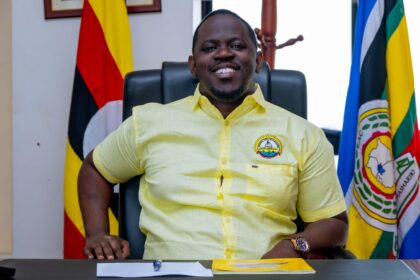By Sharon Tshipa
A week of climate talks in Poland has revealed that human rights have been excluded in the rule book. Three years ago, the Paris Agreement marked a historic recognition by countries of the necessity to respect and protect human rights in all climate action.
Victoria Tauli-Corpuz, the United Nations Special Rapporteur on the Rights of Indigenous Peoples when speaking at the ‘Rights at risk in the Rulebook’ climate change press conference in Katowice, Poland today said, “It’s the obligation of States to comply to the human rights obligations they have signed. There is a need to put human rights into the centre of the solution to climate change. Failure to comply with the Paris Agreement maybe making a mockery of the rights we signed up for.”
Moreover she said it is essential that States fully integrate human rights standards and principles in the Paris Rulebook. It will very well be unfortunate if the need to protect and respect fundamental rights is not reiterated in the decisions here in Katowice. This will further harm the most vulnerable sections of society.
Her concerns come at a time when Monday marks the 70th anniversary of the adoption of the Universal Declaration of Human Rights. In 1948, this historic moment signaled the beginning of a new era founded on the respect of human dignity and the belief that the rights of all humans deserve equal protection.
Seventy years later, a broad coalition spanning several constituencies, a press release from CARE International notes is calling all the United Nations Framework Convention on Climate Change (UNFCCC) framework member countries to deliver on the Paris promises and guarantee that the vision of people-centered and rights-based climate action outlined in the Paris Agreement remains at the core of the implementation guidelines.
Entering into the last stretch to finalize the Paris Rulebook, CARE International asserts that countries seem to suffer from amnesia but there is only one way forward –to shift towards rights-based solutions, ensuring the consideration of gender, indigenous peoples, a just transition, and intergenerational equity in the implementation of the Paris Agreement. Leaving out fundamental rights, the release highlights, would not only undermine the Paris Agreement itself, but also send a dangerous signal to populations around the world living on the frontlines of climate change.
Fenny Petitbon, Advocacy Manager at CARE France was concerned about the implications that the exclusion of human rights texts in the rulebook might have on women. “In our day-today work with vulnerable communities, we sadly observe that women experience a double injustice: in addition to gender inequality, they bear the brunt of climate impacts,” she said. Urging countries not to ignore that women also play an instrumental role in adapting to climate change and building the resilience of their communities. Moreover she said countries should demonstrate that climate talks are not disconnected to from the real world.
Given the centre stage, Sebastien Duyck, Senior Attorney at the Centre for International Environmental Law said immediate action is necessary to avoid the suffering of millions of people and the collapse of ecosystems.
Do you have a story in your community or an opinion to share with us: Email us at Submit an Article






